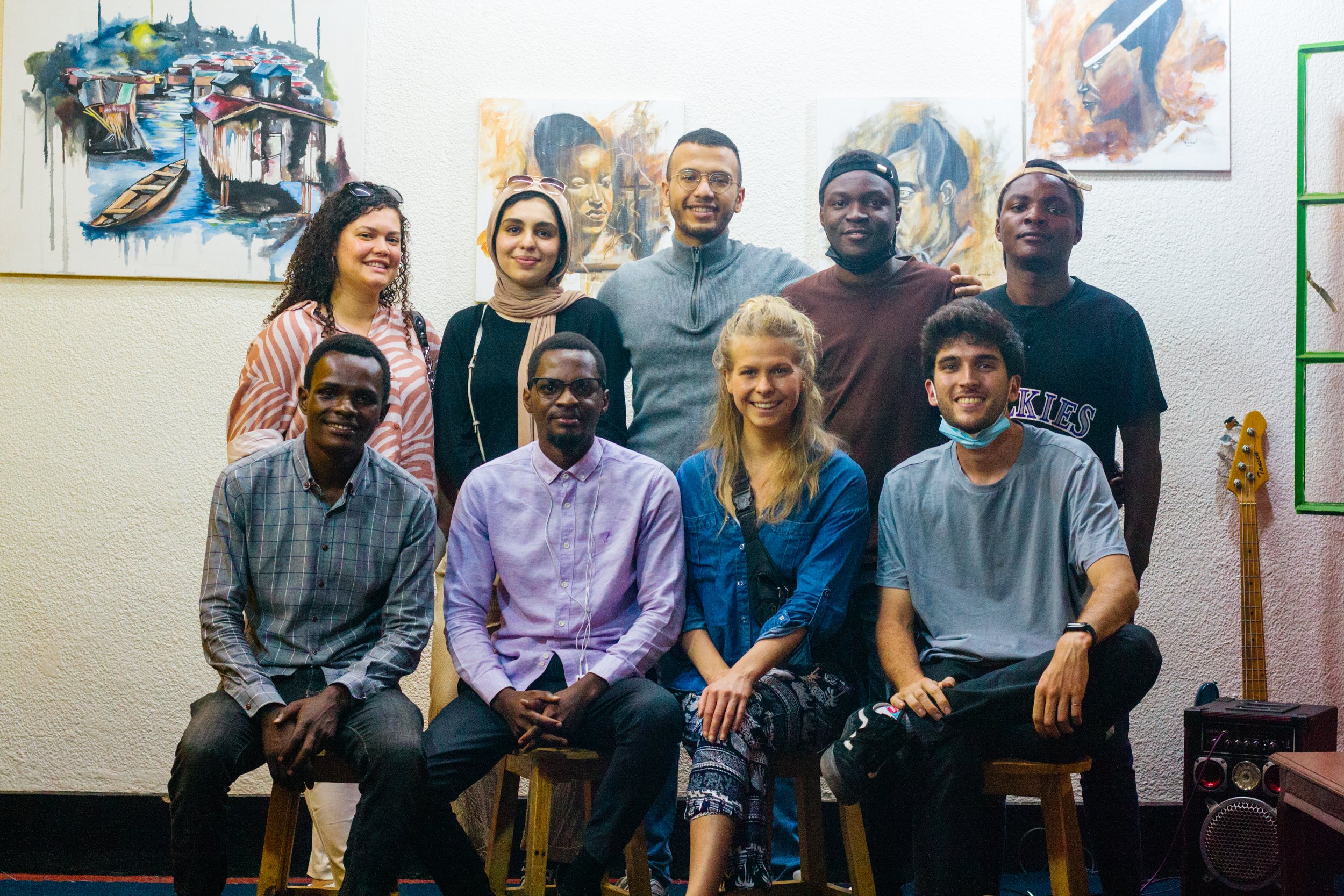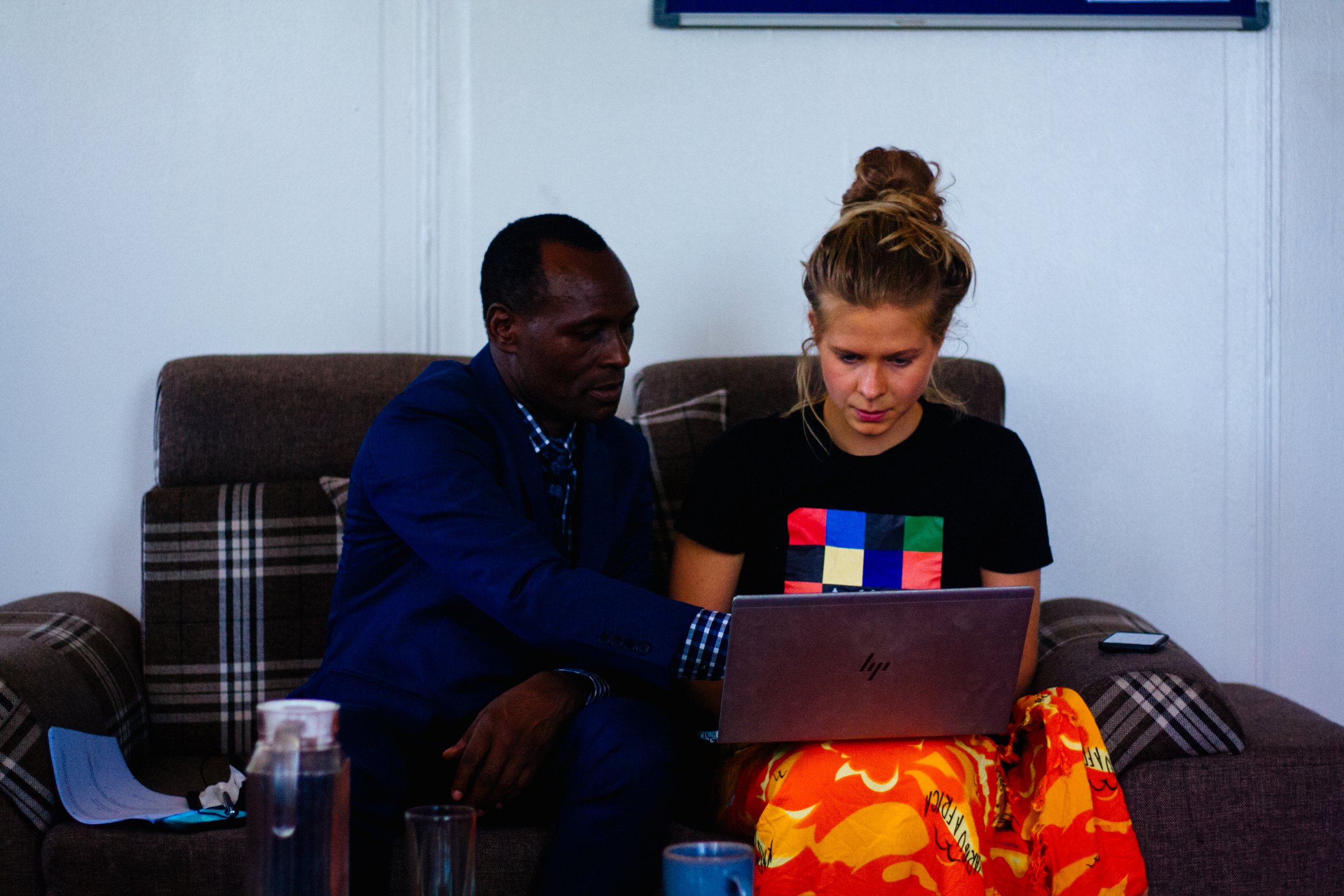Sustainable Lean Six Sigma Course in Kigali, Rwanda
By Raul Sotillo Guzman
Two months ago, I travelled to the heart of Africa to teach the first Lean Six Sigma (LSS) Green Belt course at the University of Kigali (Rwanda) as part of our Complex Problem-Solving Project, run in conjunction with Ambitious.Africa and ESTIEM.
How did it all start?
One year ago, I checked a post from Yassine Loqmane on LinkedIn, about Ambitious.Africa and how to get involved in one of those projects. I had some ideas after joining the SHAER Equal Trade team in ESTIEM, and I saw it was a great opportunity to develop them.
Nevertheless, they contacted me with a concept in mind: bringing the Lean Six Sigma course, or another Problem-Solving course to Africa, creating another network like the one we already have in Europe to provide these tools to the youth of this continent. And we wanted to keep it sustainable. Members across the Ambitious.Africa network started to apply to be part of this project (from both continents) and we created a nice international team.
Team Accomplishments:
We gave the project the name “Complex Problem Solving” project; a very simple but descriptive name! Also, we designed a logo, which is the shape of Africa but at the same time the letters CPS.
Creation of a mini-LSS introduction training thought for the people that wanted to join the team but didn’t have much knowledge about lean six sigma, due to the diversity in the different backgrounds.
We decided on the target audience, the scope of the project and the content we wanted to deliver. The target audience would be groups of students since they could use this knowledge to continue learning. That would also attract the interest of universities. The course content could be adjustable, depending on what’s coming next.
Decided the place in which we wanted to focus our efforts to hold the project. It wasn’t an easy task. We held conversations with local volunteers in Zambia, Ghana and Rwanda. We also explored further possibilities. After analysing every single parameter (we even used software for the decision) we decided to focus on… Zambia! You probably didn’t see this coming. During the summer we focused our efforts to contact the team in Lusaka, gathered a group of volunteers there and even started to keep in contact with the universities.
Unfortunately, elections were held and the change of the government also changed institutions like the public universities. Our goal was to have the course done for November, but in September all the process was stopped, and therefore the project was kept with a goal but with no possible date for it. The project was left on standby.
Boosting the project
In November, I received a call from Yassine. He met some people in Paris that needed a project like ours to work on for their Master's. Their names? Nada, Bassala, Amir and Alizé. We had some meetings together and finally, after re-structuring the project, everything started to move on very quickly.
Maija, Nada and I had some meeting calls with lovely people from Rwanda, like Benjamin or Mark Bagabe, who helped us a lot and gave us the motivation we needed. Now our focus was Rwanda, and the project got boosted.
After numerous calls, documents, slides and spreadsheets shared, we established contact with Michael Sanja, from the University of Kigali, who expressed his interest in the project and facilitated everything. We also had some calls with the University of Rwanda, a bigger one, and talked about the possibility of expanding the course to their institution.
The University of Kigali offered us a date, two weeks before the course. We already had everything ready. Since it was the only possibility we had (I started to work in Germany the day after the course finished, I flew directly from Rwanda). Without Ambitious.Africa’s financial support, this project could not have happened.
Why Lean Six Sigma Course in Rwanda?
We believe Rwanda, like many growing economies around the world, needs more innovation, capacity building and empowerment for their young generation. This will increase the impact of engineering in the country and will improve the quality of the processes. In the longer term, this improvement at a local level will increase the investment in the country's companies, allowing Rwandese companies to hire locally, and will also allow individuals to look for jobs in other places now that their knowledge is expanded. In the end, education is more valuable than money in the long term.
I always think about the example of an NGO that collects money to give resources to undeveloped countries. Is this the right way? In the short term it might help, but what about in the long term? That is not a sustainable solution, it creates dependency.
We believe that success and growth come from within and that developing societies should be provided with the necessary tools to grow on their own, rather than being provided with goods that will eventually perish. Knowledge and data are more valuable than money, as they prevail over time.
Our vision is to create a network of courses, extend the boundaries of the project throughout Africa, and create an international network of trainers like the one currently in place at ESTIEM throughout Europe, working together to achieve our goal: to create a sustainable project both locally and internationally. And we will continue working to make that happen.
How did the course go?
University facilities
The University of Kigali gave us one full week from 10:00 to 16:00. We had enough time. The space was good, more than what we expected, and they were open to helping us with whatever we needed.
Course content
About the content of the course, we used the same content as in the LSSGB course in ESTIEM. The points were:
Initiating a Lean Six Sigma Project
Exploratory Data Analysis
Process Mapping
Risk Analysis
Measurement System Analysis
Analysis
Improve
Control
Final Case (exam)
The material was very well adapted so every student, no matter if they had a technical background or not, could understand it. We decided to cover Minitab (a software used in Quality and Analysis) just for the final case and it worked pretty well. Students could make their graphs and we didn’t lose much time on that. They loved the idea of using the catapults and understanding everything practically.
On the first day, we had a welcome ceremony, and the relations with the students were improving over the days. Rwandese people are quite shy in the beginning, but once they get to know you better, they are very open and friendly.. After the second day, the university got us a professional videographer, so he filmed everything and sent us the material; we will make a short documentary out of it.
Daily feedback
Over the days the feedback of the students was getting better. The topics where they struggled with the most were EDA and understanding the graphics, but whenever they understood, even though it took some time, it was very easy to relate it to the different other parts of the DMAIC cycle and helped to better understand some of the other concepts. This problem-solving vision was indeed one of the key goals reached.
What was the impact of the course?
All the 25 students got their diploma and their green belt.
After asking for some feedback about the value-added they got from the course, it is remarkable to say that, aside from the lean six sigma and DMAIC methodology and its applications, they learned:
Project MGMT
Solution-oriented capacity
Creativity to achieve goals
Teamwork
How to manage waste and variation
How to learn from other students
Furthermore, it is worth mentioning that more than half of the students want to become instructors and almost all of them are interested in doing a practical project to complete their ESTIEM LSS Certification. Also, most of them were interested in receiving a course about another subject, since they liked the way we were teaching in ESTIEM, so let me know if you have something in mind.
Advances with the University of Kigali
The most remarkable thing to say is that the course at the University of Kigali will be sustainably taking place. They want to incorporate this knowledge into their university program and we are currently discussing how. Exciting times are coming!
What are the next steps after the course?
As said, several other universities in Africa are interested in holding the project after understanding the success of this one. With Dr Sanja, we are still in contact and discussing the possibility to expand the course already. He facilitated some contacts with universities in Nairobi and Mombasa, Kenya. They are interested in hearing from the project. Dr Sanja discussed with us that after the course, they are also interested in the idea of an application for an ERASMUS at the University of Kigali.
We are currently discussing this, but it indeed looks good!
As mentioned before, we also had meetings about having the course at the University of Rwanda. It would be a nice starting point for the expansion of this course since the students that received the course already could train themselves as trainers there without having to move to some other country. Also, there have been conversations with other universities and contacts in Zambia, Ghana and Sierra Leona.
Another next step will be the creation of a documentary that will allow us to get sponsors and make the project sustainable.
In conclusion
First of all, the course went pretty well and the experience was incredible. The country is very much welcoming and we hope to have another edition of the course at the University of Kigali soon. Second, it has been shown that it’s possible to adapt the content of the current course to other scopes, making it still successful. Thirdly, we are hoping to offer more possibilities to ESTIEMers once we can set up new potential courses. But so far, you can always join us!
I hope this article works as motivation to join the project with us, or maybe helps future LSS Instructors to drive the course considering the possible issues faced.
Special thanks
Also, big thanks to Yassine, for introducing me to Ambitious.Africa and helping so much with the logistics. Infinite thanks for the extra energy to fuel the project and for believing it was possible even when it seemed the opposite. Thanks to Martijn Buijvoets and Jukkas for helping so much with the content in making the course possible and making it easier for me to instruct in this course. Thanks for the material, the facilities and the time and effort.
Big thanks to Dr Sanja and all the team at the University of Kigali. Also, thanks to all the students, it was great to meet you all and I hope we can see each other in the future.
And thank you so much for reading. You are all welcome to join the Complex Problem Solving team to take ESTIEM to another level.
See you somewhere in this small world!







